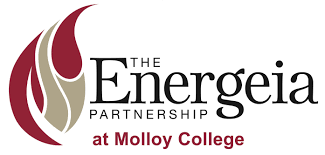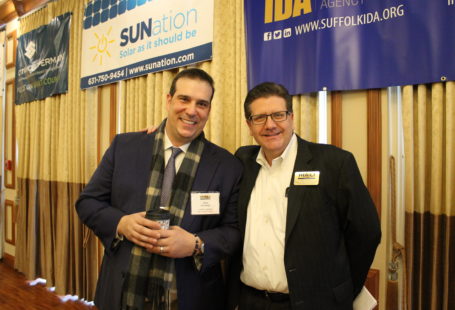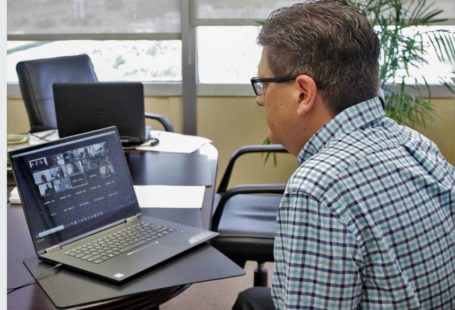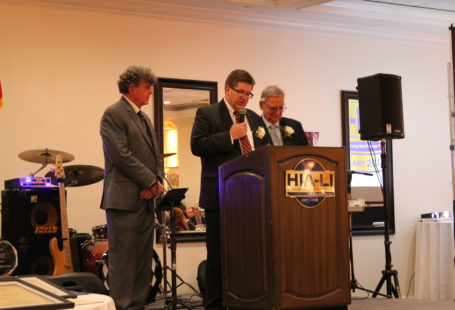 Joe Campolo delivered these remarks at the Energeia Partnership’s Racism Workshop on October 17, 2018.
Joe Campolo delivered these remarks at the Energeia Partnership’s Racism Workshop on October 17, 2018.
Good afternoon, everyone. My name is Joe Campolo and I’m the Managing Partner of Campolo, Middleton & McCormick, LLP. I’m very proud to be here as a member of the Energeia Class of 2016, a member of Energeia’s Board of Advisors, and the sponsor of today’s workshop.
As you all are aware, Energeia is a terrific path to help Long Island leaders become more thoughtful about different perspectives before making decisions that impact people and society at large. My personal experience with Energeia was eye-opening and vastly expanded my perspective on key issues that shape Long Island and our society, especially on issues of race, the subject of today’s workshop.
Because of my experience with Energeia, I began writing a blog called Off the Record, where I share my personal thoughts, observations, and views on critical issues and current events that impact our world. I’ve shared with you today a copy of my blog from last December on the subject of white privilege, which was inspired by my participation in this important class. Had I not attended this program, and approached it with an open mind, I may never have gained this valuable perspective.
You can read the full article at your leisure, but to summarize, in it I discuss the first time I was introduced to the concept of “white privilege”; it made my blood boil. I remember thinking how dare someone insinuate that I had gotten where I am today because of some “privilege.” Those who spoke of white privilege didn’t know me, didn’t know I had started working at 12, that I went into the Marine Corps out of high school to serve my country and be able to afford to go to college under the GI bill, that I worked full-time during the day while a college student and went to school at night, that I worked my entire time in law school, and so on. To me that sounded like hard work, not privilege.
But what I’ve since realized is that when folks use the term “white privilege,” they are not seeking to diminish any of the accomplishments I have been able to achieve, but are correctly acknowledging that those difficult accomplishments become even more difficult when there are generational barriers that exist for one group that do not exist for another.
I need not remind you that it was just over 150 years ago that the laws in this country were changed to recognize that black Americans have rights as persons, rather than no rights as property. For the white folks in attendance today, just let that sink in. Following the Civil War, rampant discrimination continued via Jim Crow laws and segregation, which resulted in low-paying jobs and no housing. It wasn’t until 1964, just over 50 years ago, that laws were finally enacted so that racial discrimination could be legally challenged, and as we know discrimination is still problematic today.
All of this has resulted in the modern-day inner cities that remain occupied predominantly by black and Hispanic Americans, where there is a disproportionately high amount of unemployment, poverty, crime and drug use. This social dilemma is not because of genetic makeup or diminished ambition or work ethic, it a direct result of our country’s very dark history and our continuing to leave these communities behind with little economic or political power to develop and revitalize. There should be no doubt in anyone’s mind that had the African community voluntarily migrated here, rather than being brought over involuntarily as slaves, they would be in a significantly better position today.
My participation in Energeia not only helped me see a new perspective on this issue, but also empowered me to take a leadership role in helping solve the crises our inner cities are facing. As one example, last year I started a pre-law program at Wyandanch High School, recognizing that it’s going to take private business, and not government, to take the leadership role in solving the crises our inner cities are facing. There needs to be significant private investment in these communities to revitalize not just the infrastructure, but also to help create jobs and train and put to work an existing but underutilized labor force. This to me exemplifies the true American entrepreneurial spirit.
I am proud to support Energeia’s incredibly important work and partner with leaders like you to help solve these problems.



